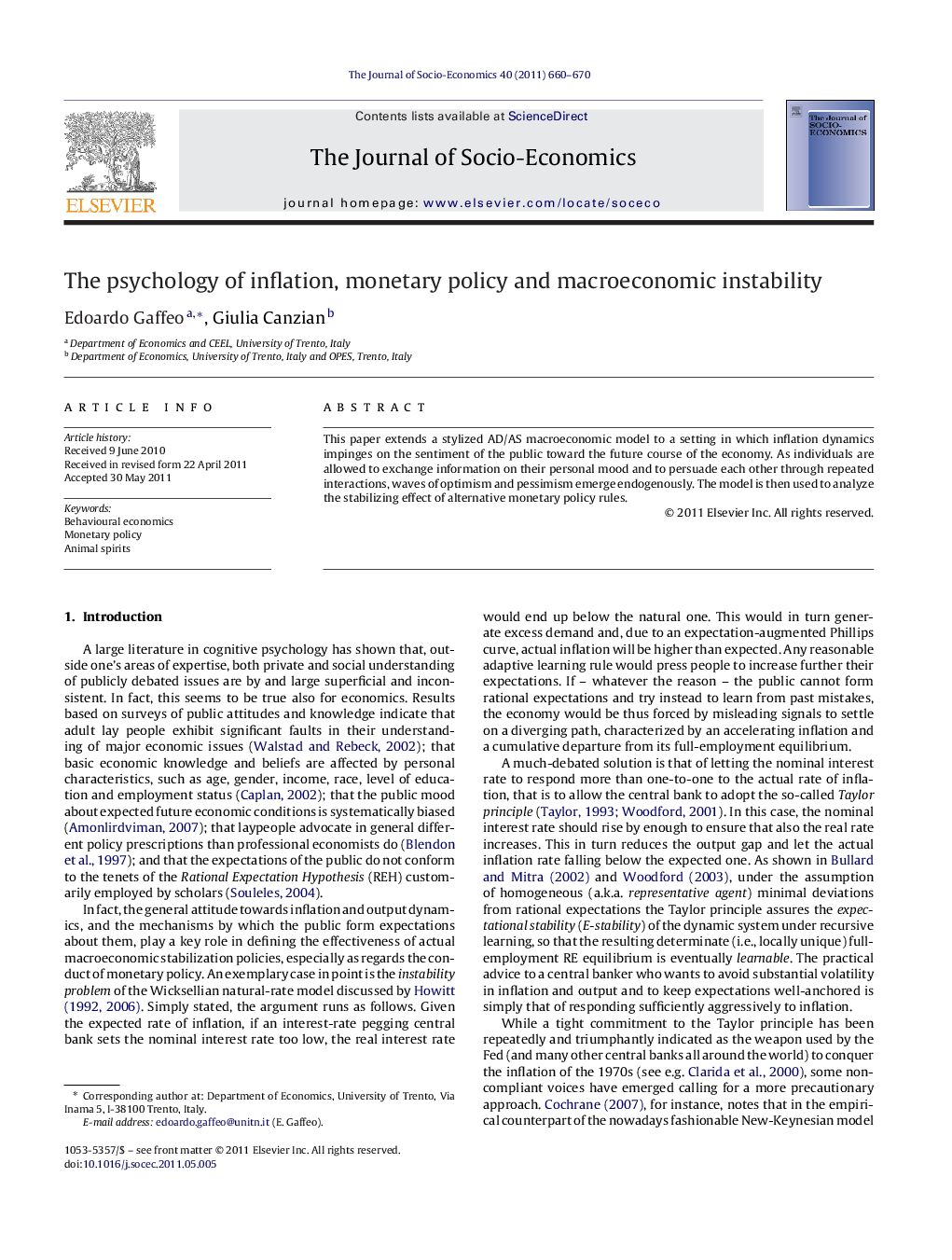| Article ID | Journal | Published Year | Pages | File Type |
|---|---|---|---|---|
| 971316 | The Journal of Socio-Economics | 2011 | 11 Pages |
This paper extends a stylized AD/AS macroeconomic model to a setting in which inflation dynamics impinges on the sentiment of the public toward the future course of the economy. As individuals are allowed to exchange information on their personal mood and to persuade each other through repeated interactions, waves of optimism and pessimism emerge endogenously. The model is then used to analyze the stabilizing effect of alternative monetary policy rules.
► The instability problem associated to an interest-rate pegging policy is modified as individuals use the good-begets-good heuristic to update their mood towards the future course of the economy. ► The endogenous emergence of waves of optimism and pessimism introduces an unavoidable layer of uncertainty on the effectiveness of monetary policy in stabilizing the economy. ► The adoption of the Taylor principle can counterintuitively destabilize the system if the intensity of animal spirits respond strongly enough to varying inflation.
